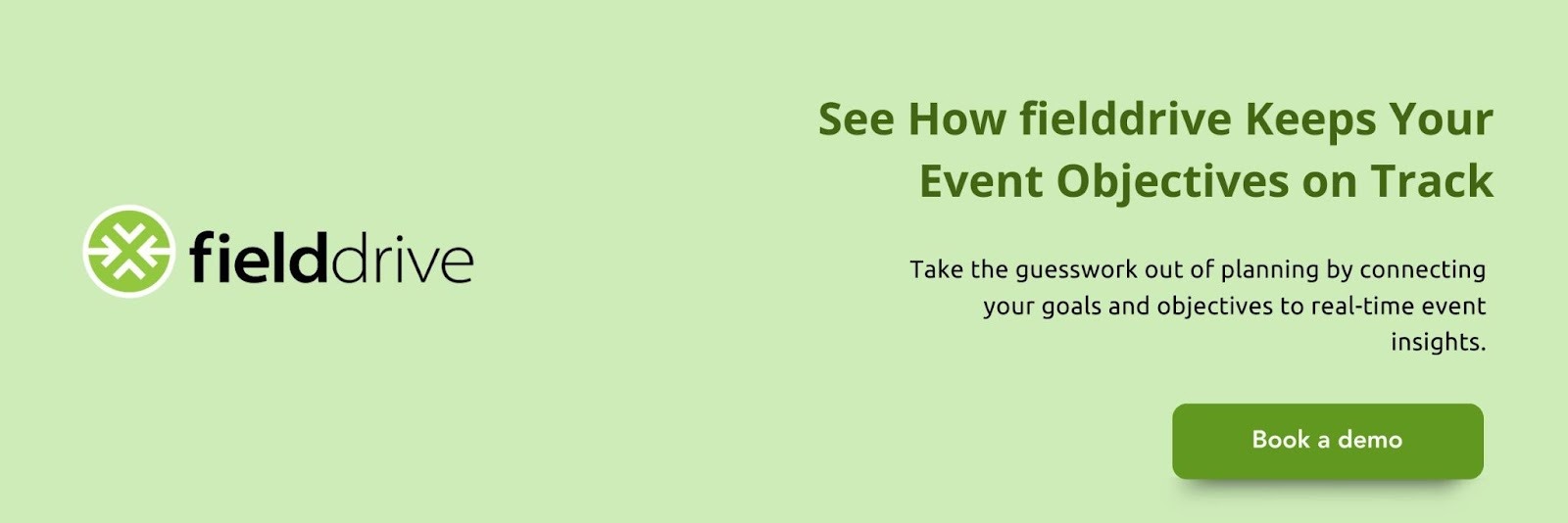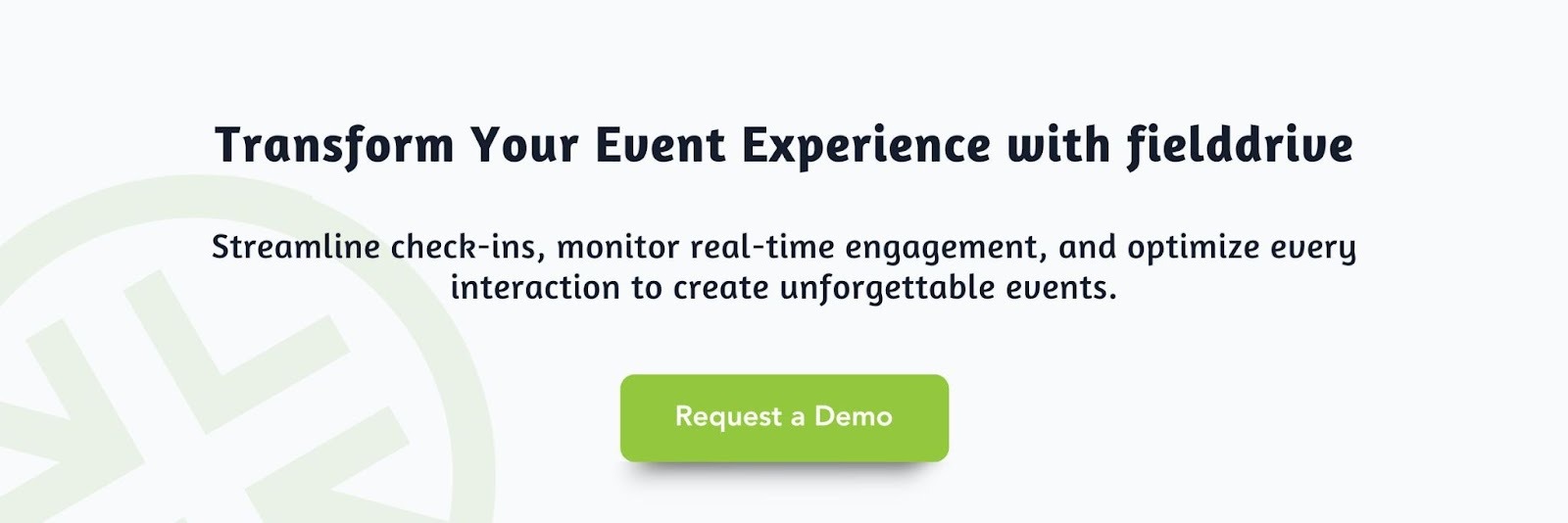Comprehensive Event Management Software for All Events
Maximize event success with comprehensive event listing software. Explore features, compare top tools, and choose your perfect fit.
.png)
CONTENT
Want your events to feel less like logistical marathons and more like unforgettable experiences? The kind where attendees breeze through check-in, connect effortlessly, and walk away feeling like the entire event was designed just for them? That transformation happens when you trade spreadsheets and scattered tools for comprehensive event management software.
This blog dives into everything you need to know about event listing software, from its core features and benefits to top tools in the market, and selection criteria.
By the end, you’ll see how the right platform can turn your events into smooth, data-driven experiences that people remember and talk about long after the lights go down.
Quick Summary:
- Event listing software centralizes registrations, check-ins, scheduling, and analytics, simplifying complex planning.
- Core features: registration, agenda management, contactless check-ins, streaming, and analytics.
- Benefits: streamlined workflows, cost savings, better engagement, insights, and compliance.
- Selection factors: ease of use, integrations, scalability, and strong support.
- Comparison: Eventbrite, Cvent, Whova, with fielddrive excelling in facial recognition check-ins, badge printing, real-time tracking, and analytics.
- Trends: hybrid models, AI engagement, advanced analytics, compliance, and sustainability.
Understanding Comprehensive Event Management Software
Event management software (sometimes called event listing software) is designed to simplify and centralize the planning process. According to MarketsandMarkets, the global event management software market is projected to expand from USD 15.5 billion in 2024 to USD 34.7 billion by 2029, reflecting a CAGR of 17.4%. This surge is driven by the rising demand for hybrid experiences, data-driven event strategies, and integrated attendee management solutions.
At its core, it provides organizers with an all-in-one platform to:
- Promote and list events across channels.
- Streamline registrations and ticketing.
- Manage attendee check-ins.
- Track engagement and collect actionable data.
The purpose goes beyond logistics; it’s about creating a smooth attendee journey while giving organizers the tools to measure success and optimize future events.
Core Features of Event Management Software
Event management software goes far beyond simple scheduling or registration. It combines multiple capabilities into a single platform, giving organizers the flexibility to manage every stage of the event lifecycle, from pre-event promotion to post-event analytics. These core features ensure smooth execution, elevated attendee experiences, and actionable insights.
1. Event Registration and Ticketing Solutions
A centralized registration system allows organizers to create customized sign-up forms, manage ticketing tiers, and process payments seamlessly. Automated confirmations and reminders reduce no-shows while enhancing attendee convenience.
2. Scheduling and Agenda Management
Dynamic scheduling tools help planners design session agendas, speaker lineups, and venue allocations. Attendees can access real-time updates through mobile apps or event portals, ensuring they never miss critical sessions.
3. Check-In and Attendee Management
Modern platforms enable contactless, instant check-ins using QR codes or facial recognition. Real-time attendee tracking reduces wait times, eliminates bottlenecks, and provides organizers with live insights into crowd flows.
4. Virtual Streaming and Engagement Tools
Built-in streaming and hybrid participation tools connect in-person and remote audiences. Features like live Q&A, polls, breakout rooms, and interactive chats keep participants engaged and foster inclusivity.
5. Data Analytics and Reporting
Analytics dashboards track attendance, dwell time, session popularity, and engagement scores. These insights empower organizers to measure event success, demonstrate ROI, and fine-tune strategies for future events.

Also Read: 11 Actionable Tips to Improve Event Security and Enhance Safety Protocols
Benefits of Event Listing Software
Event listing software goes beyond simply showcasing events; it acts as a complete management hub. With the right platform, events become easier to plan, more cost-efficient to run, and far more engaging for participants.
- Centralized Event Management: Manage registrations, schedules, check-ins, and analytics from a single platform, eliminating the hassle of juggling multiple tools.
- Increased Attendee Convenience: Simplify the attendee journey with easy registration, instant check-ins, and real-time updates that reduce friction and enhance satisfaction.
- Time and Cost Efficiency: Automate repetitive tasks like badge printing, ticketing, and reporting to save staff time and reduce operational costs.
- Better Engagement and Networking
Leverage interactive tools, personalized agendas, and data-driven matchmaking to keep attendees engaged before, during, and after the event. - Actionable Insights with Analytics: Access detailed reports on attendance, engagement, and behavior to improve planning, optimize resources, and measure ROI effectively.
- Scalability Across Event Types: Whether it’s a small workshop, a hybrid conference, or a global expo, event listing software adapts to different formats and scales effortlessly.
- Enhanced Security and Compliance: Ensure secure access control and compliance with global privacy standards, especially important for large or sensitive events.
Criteria for Selecting Event Management Platforms
Choosing the right event management software requires more than just comparing features; it’s about finding a platform that fits seamlessly into your workflows, scales with your needs, and ensures smooth execution at every stage. Here are the key factors to consider when evaluating options:
1. User-Friendliness and Intuitive Platform Design
A platform should empower, not overwhelm. Intuitive dashboards, drag-and-drop interfaces, and mobile-friendly designs reduce the learning curve for both organizers and attendees, ensuring smooth adoption across teams.
2. Compatibility and Integration with Existing Systems
The best software integrates seamlessly with CRM systems, marketing automation tools, and payment gateways. This ensures that data flows effortlessly across platforms, reducing manual work and enabling holistic event management.
3. Flexibility and Scalability
From intimate workshops to global conferences, the platform must adapt to different event formats, whether in-person, virtual, or hybrid. Scalability ensures you can grow without switching tools every time your event size changes.
4. Strong Customer Support and Resources
Reliable support is crucial during live events where every minute counts. Look for 24/7 customer service, onboarding assistance, and a library of resources such as tutorials, FAQs, and case studies.

Now that we know how to evaluate the right platform, let’s explore how the top event management software solutions compare side by side.
Comparison of Leading Event Management Software
Choosing the right event management solution means looking beyond marketing hype and comparing real-world features, strengths, and trade-offs. Below is a side-by-side comparison of some of the top platforms, highlighting where each shines and where you might face limitations.
We’ve seen how leading event management platforms compare, but knowing the features isn’t enough. The next step is identifying which solution truly fits your event’s unique needs.
Also read: Event Data Privacy & Security: Protecting Attendee Information in 2025
How to Choose the Best Software for Your Event Needs
With so many platforms available, selecting the right event management software comes down to aligning tools with your specific goals, audience, and resources.
Use these key considerations as a guide:
- Assess specific event requirements: Every event is unique. Start by identifying your core needs, whether it’s seamless check-in for a 10,000-person conference, hybrid engagement tools for a global summit, or simple registration for a local workshop. Match features to the type, scale, and goals of your event.
- Budget considerations: free vs paid options: Free tools like Eventbrite may cover small or community events, while enterprise-grade solutions like Cvent or fielddrive provide scalability, analytics, and advanced integrations. Evaluate upfront costs, per-ticket fees, and long-term ROI before committing.
- Device accessibility and compatibility: Modern events require accessibility across devices. Ensure the software works seamlessly on desktops, tablets, and mobile apps, both for organizers and attendees. Mobile-first check-in, digital badges, and push notifications enhance the attendee journey.
- Industry- or event-specific solutions: Some platforms specialize in particular industries (like academic conferences or sports events). Choosing software tailored to your sector ensures smoother workflows and built-in compliance with industry expectations.

Also Read: Expert Tips On How To Find Your Perfect Event Registration Platform
Trends in Event Management Software
The event tech industry is evolving rapidly, driven by shifts in audience expectations and advances in digital tools. Staying ahead of these trends ensures organizers can deliver experiences that are not only seamless but also memorable and data-driven.
- Rise of Virtual and Hybrid Event Solutions: Hybrid models are no longer optional; they’re expected. Platforms now offer integrated streaming, real-time Q&A, and networking tools to connect in-person and virtual attendees, expanding reach and inclusivity.
- Innovations in Attendee Engagement: Gamification, AI-powered matchmaking, and personalized event journeys are transforming passive participation into active involvement. These tools foster deeper engagement, longer session attendance, and higher satisfaction scores.
- Enhancements in Data Analysis and Custom Reporting: Organizers are leaning on advanced analytics to measure dwell time, engagement rates, and ROI. Custom dashboards and predictive insights help refine event strategies and make data-driven decisions for future planning.
- Focus on Security and Compliance: As events collect more sensitive attendee data, platforms are prioritizing GDPR-compliant practices, data encryption, and biometric privacy safeguards. This not only builds trust but also ensures long-term sustainability.
- Sustainable Event Technology: Eco-conscious event planning is rising, with software helping reduce paper waste (digital tickets, mobile agendas, on-demand badges) and optimize resource use. Sustainability features are becoming a decision-making factor for organizers and attendees alike.
Elevate Your Event Management with fielddrive
Event management today isn’t just about planning logistics; it’s about creating seamless, secure, and data-driven experiences that deliver real impact. fielddrive takes comprehensive event management to the next level by combining innovative technology with operational precision.
From registration to post-event analytics, fielddrive ensures every detail is managed with speed, accuracy, and attendee satisfaction in mind. Centralizing key functions into one powerful platform allows organizers to focus on engagement and outcomes, not manual processes.
How fielddrive Powers Comprehensive Event Management
- Smart Registration & Ticketing: Offer a streamlined, customizable registration process with automated ticketing that enhances convenience for both organizers and attendees.
- Dynamic Agenda Management: Keep schedules flexible and attendees informed with real-time updates, ensuring smooth coordination across sessions and speakers.
- Seamless Check-In & Badge Printing: Use fielddrive’s facial recognition check-in and instant badge printing to reduce wait times and set the tone for a professional event experience.
- Real-Time Attendee Tracking: Gain visibility into attendee flow and behavior, enabling you to optimize layouts, manage crowd density, and boost engagement.
- Integrated Analytics & Reporting: Turn event data into actionable insights with advanced analytics that measure attendance, engagement, and ROI for smarter planning.
With fielddrive, event management becomes a seamless, tech-driven process that delivers measurable results. Organizers can execute with confidence, knowing every stage of the event is backed by innovation and precision.
Final Thoughts
Comprehensive event management software has become a cornerstone for delivering seamless, engaging, and measurable experiences. From streamlining registration and check-ins to integrating hybrid engagement tools and generating actionable analytics, these platforms empower organizers to execute smarter and scale bigger.

With the right solution, events are no longer just logistical challenges; they become opportunities to create impact, build stronger connections, and drive measurable results.
Ready to Transform Your Events with fielddrive? fielddrive combines advanced facial recognition check-ins, secure access control, real-time attendee tracking, and data-rich analytics into one unified platform.
Request a Demo today and see how fielddrive can take your event management to the next level.
FAQs
1. What is event management software, and why do organizers need it?
Event management software is an all-in-one platform that simplifies planning, execution, and analysis for events. It centralizes tasks like registration, check-in, scheduling, and analytics, helping organizers save time, reduce errors, and create seamless attendee experiences.
2. How does fielddrive’s solution differ from traditional event management software?
Unlike traditional tools, fielddrive integrates advanced facial recognition check-ins, real-time attendee tracking, and secure access control. These features streamline on-site operations, reduce waiting times, and provide organizers with actionable insights for smarter decision-making.
3. Can event management software handle both in-person and hybrid events?
Yes. Modern solutions, including fielddrive, are designed for versatility. They support in-person, virtual, and hybrid event formats, ensuring organizers can deliver engaging, inclusive experiences for all attendees.
4. Is attendee data safe when using event management software?
Absolutely. Leading platforms like fielddrive use secure encryption and comply with strict privacy regulations (including GDPR). This ensures that sensitive attendee information, including biometric data, is always protected.
5. How can analytics from event management software improve future events?
Event analytics provide insights into attendee behavior, popular sessions, engagement levels, and ROI. With fielddrive’s integrated analytics, organizers can use this data to refine layouts, personalize experiences, and improve planning for upcoming events.
Want to learn how fielddrive can help you elevate your events?
Book a call with our experts today



.png)
.svg)
.svg)
.svg)

.svg)